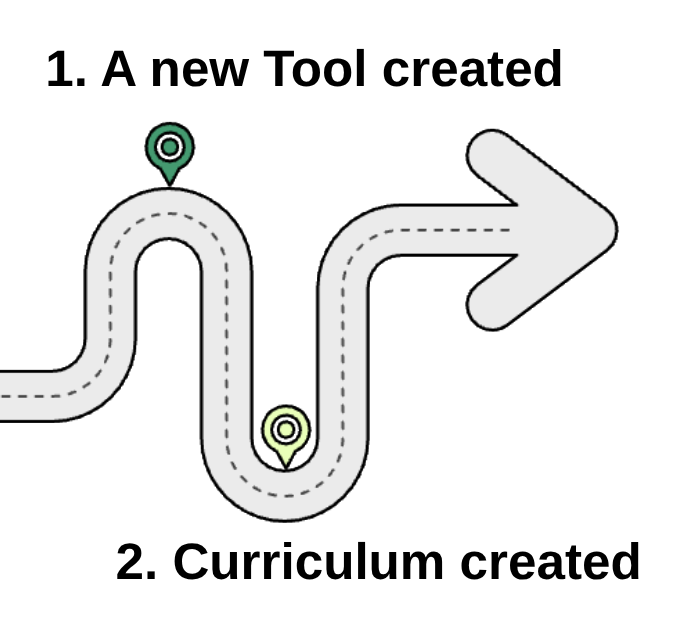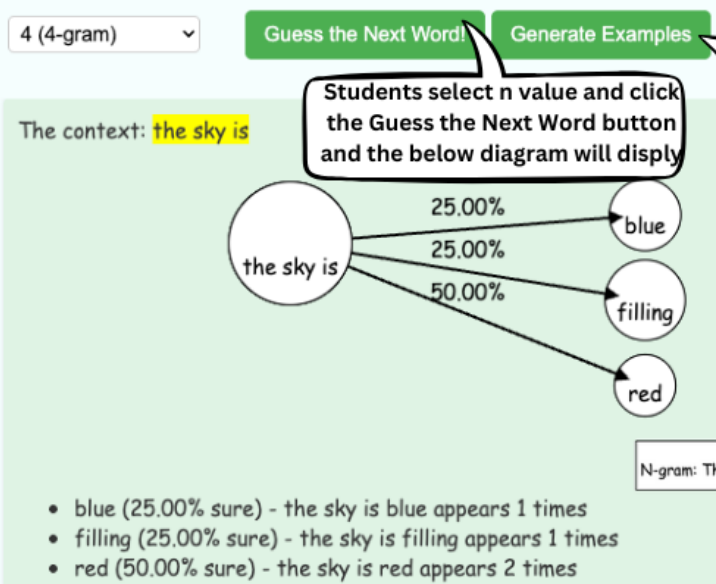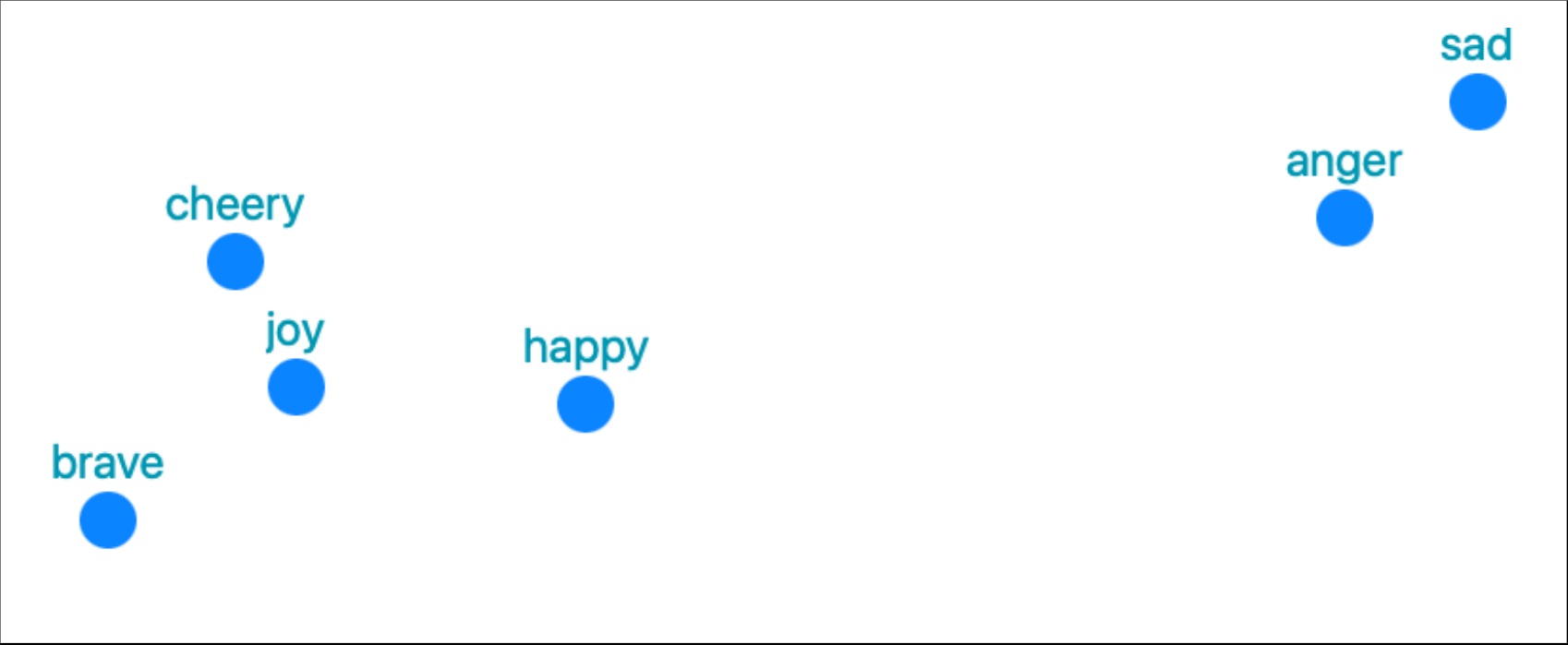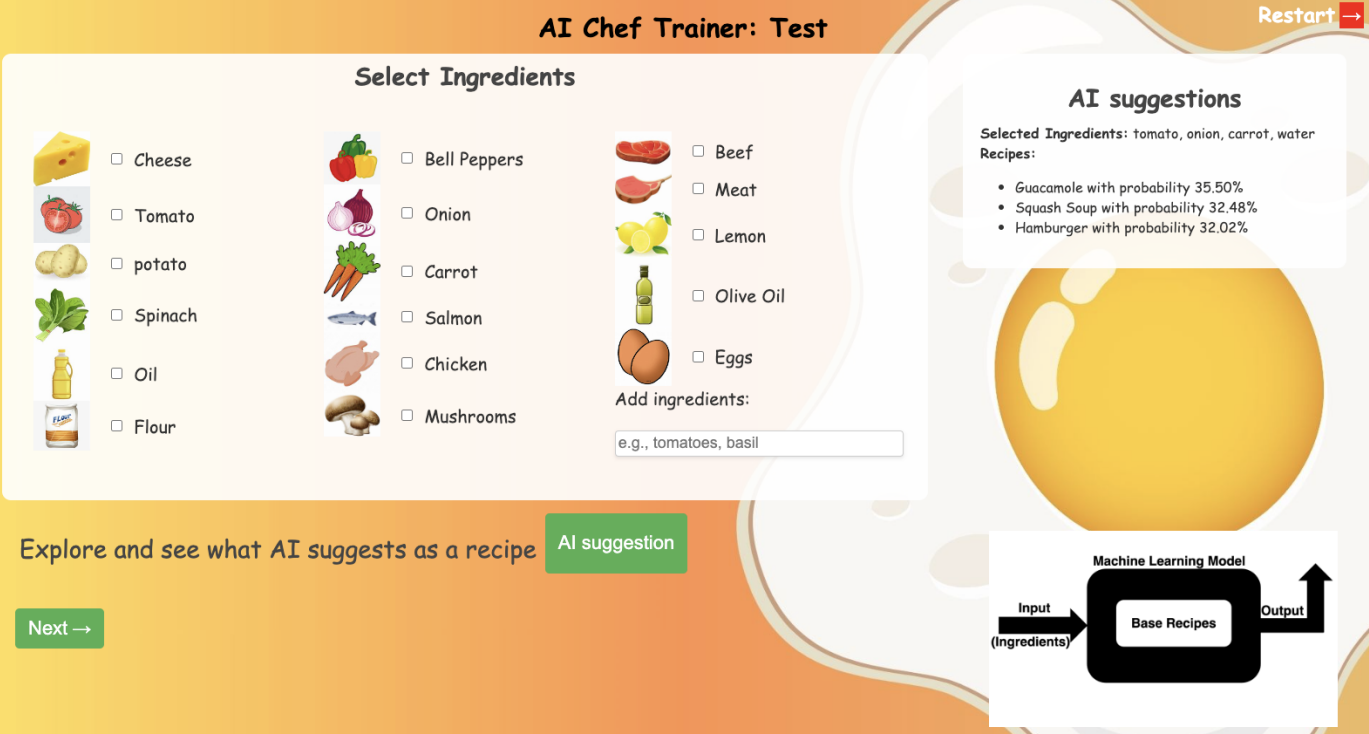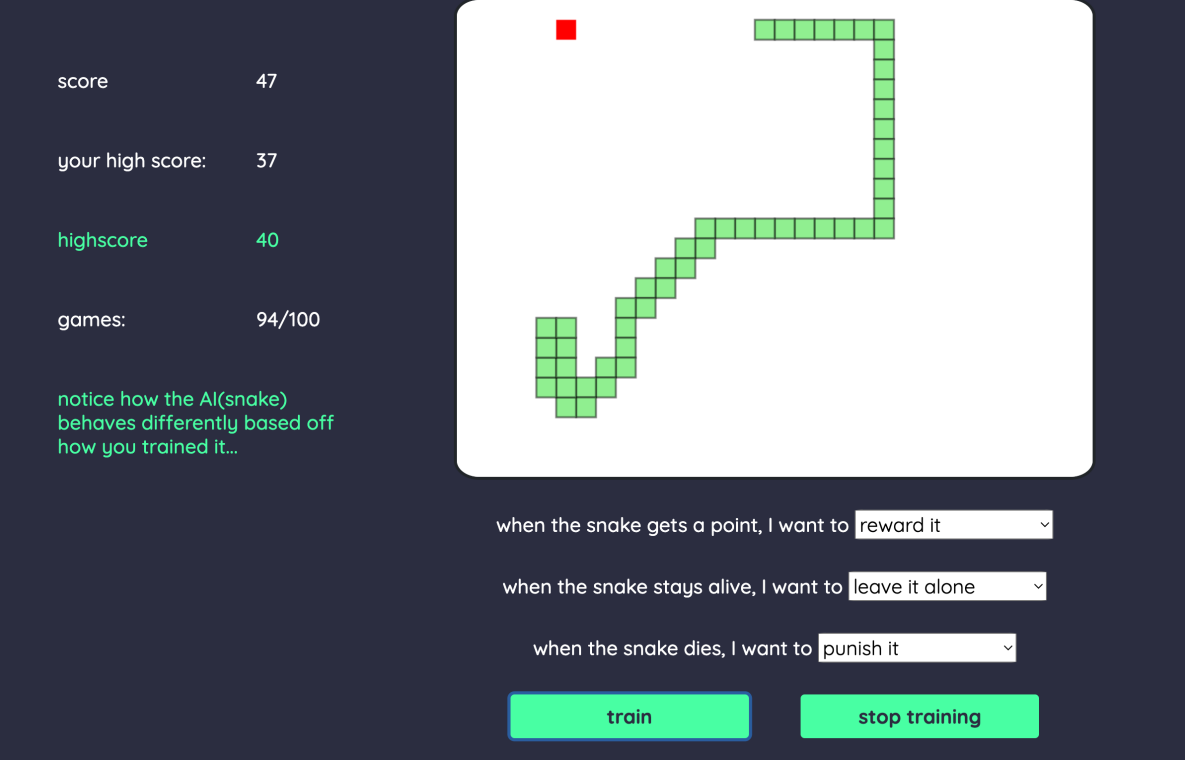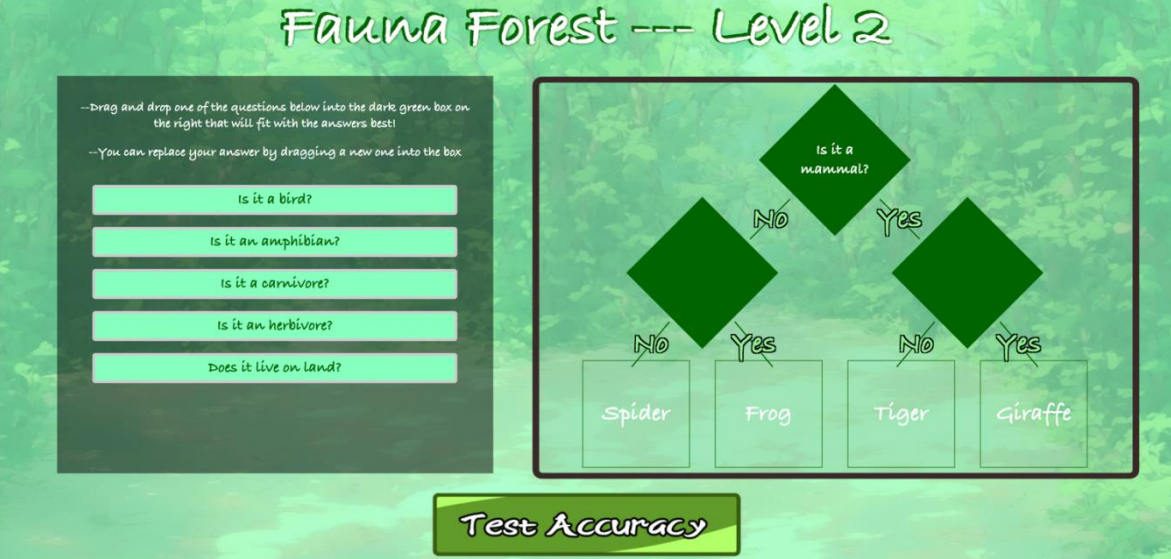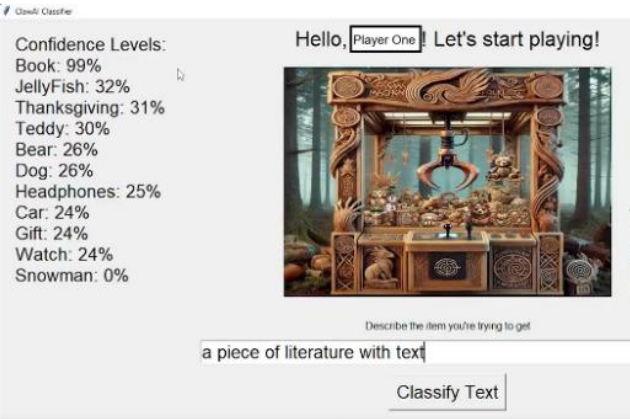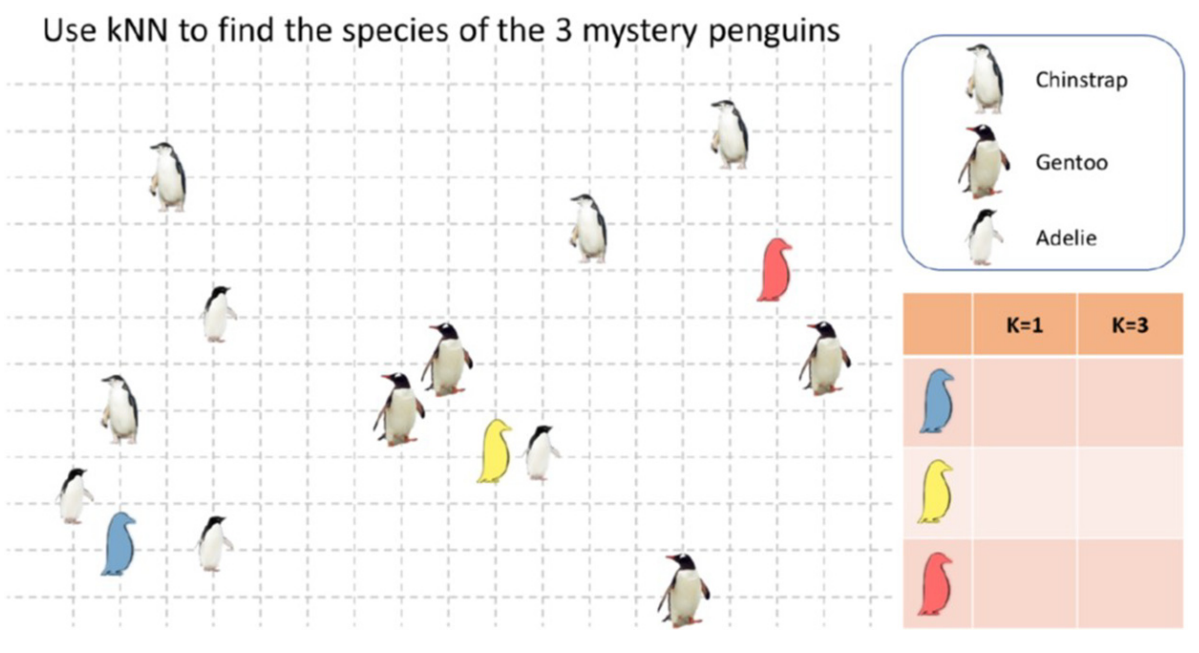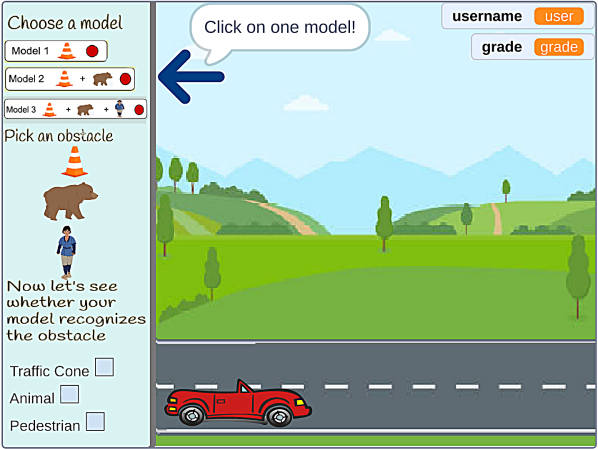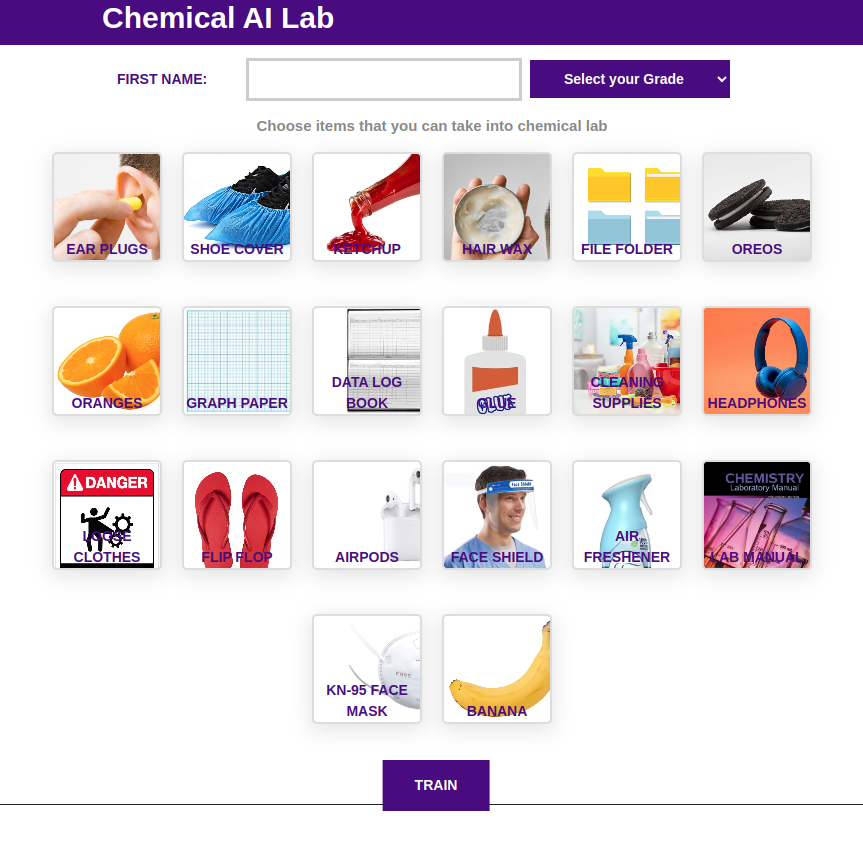AI for K-12
As part of the AI-CARING NSF Institute, we are developing a set of interactive tools to introduce novice learners to ideas in AI.
Ice Cream Express
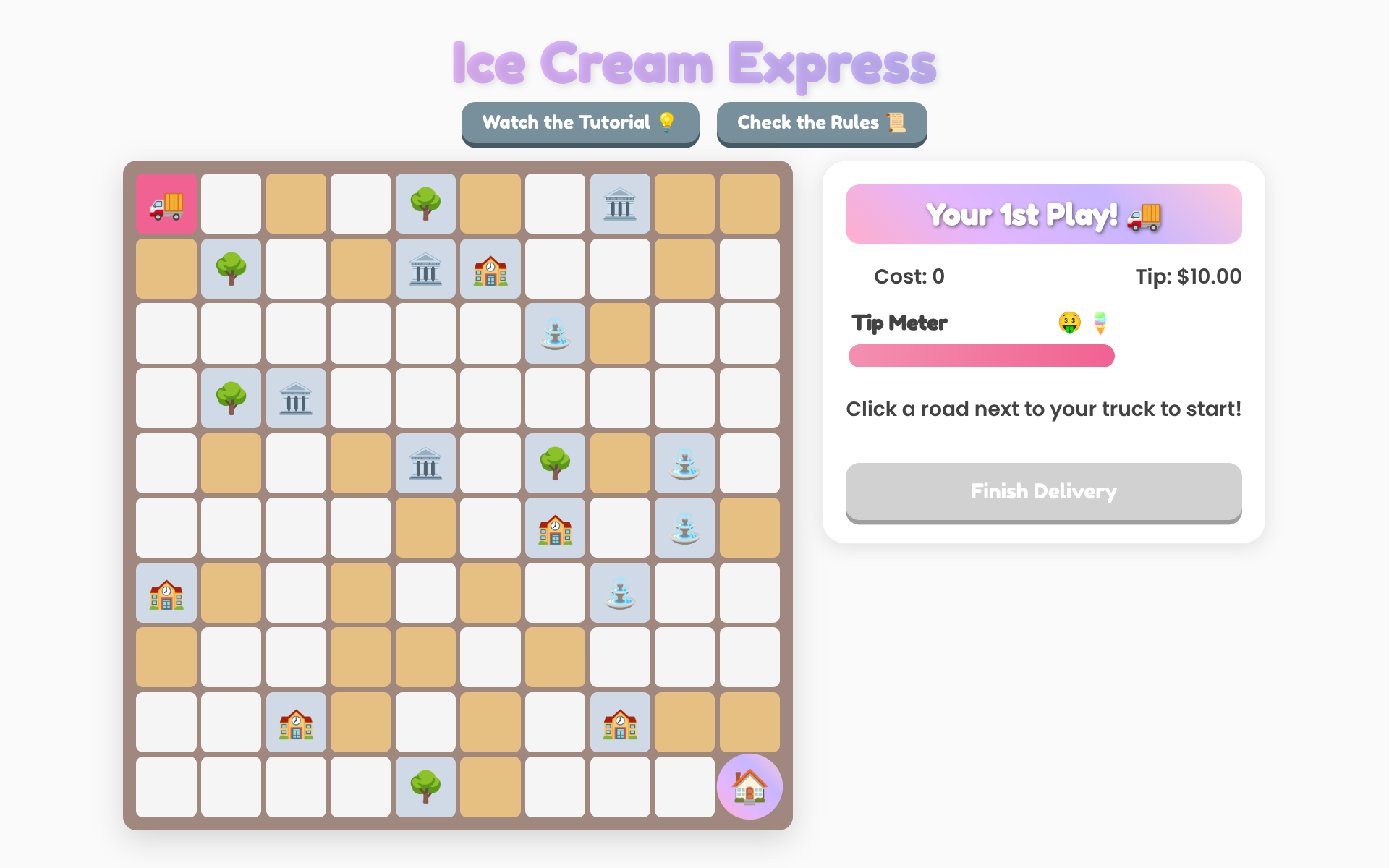
Ice Cream Express was developed by Nicole Tian and Devansh Shah in the Developing AI Tools for K-12 course at UTSA (Fall 2025). This tool scaffolds the A* search algorithm for K-12 learners through an ice cream delivery game, where users are motivated to find the shortest path to maximize tips. The bot’s delivery visualizes the A* search and reveals heuristic logic. The tool also captures real-time telemetry and state logging for each user.
Try it here! Ice Cream Express
AI Hoops
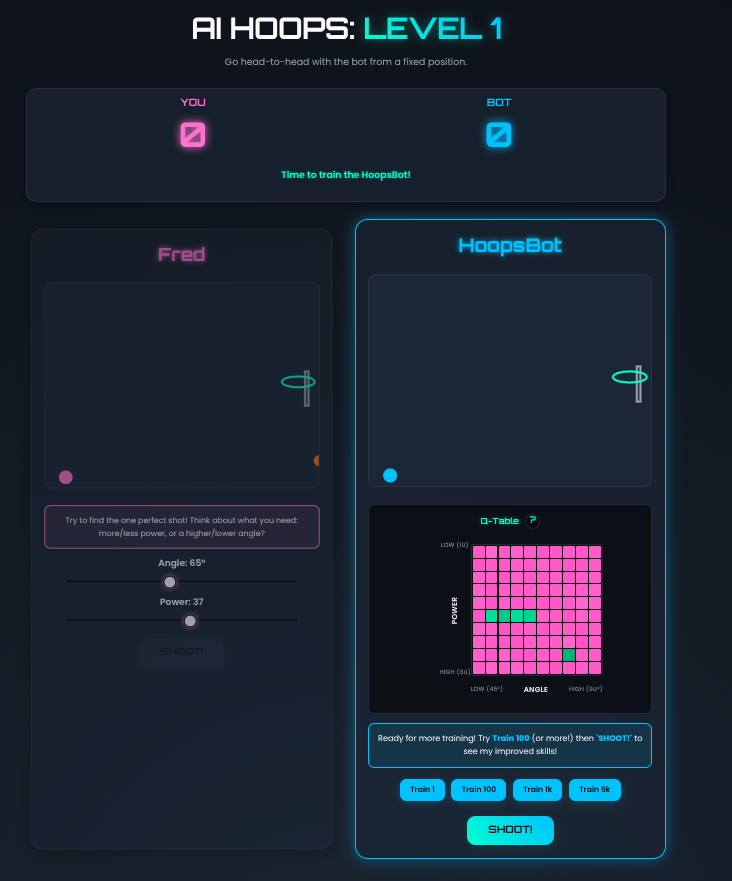
AI Hoops was developed by Nicole Tian and Chris Arellano in the Developing AI Tools for K-12 course at UTSA (Fall 2025). This tool teaches Q-Learning through an interactive basketball game played with an AI bot. It visualizes the bot’s training process by displaying real-time Q-Table updates. Additionally, the tool captures telemetry and state logging to facilitate user analysis.
Try it here! AI Hoops
AI-See
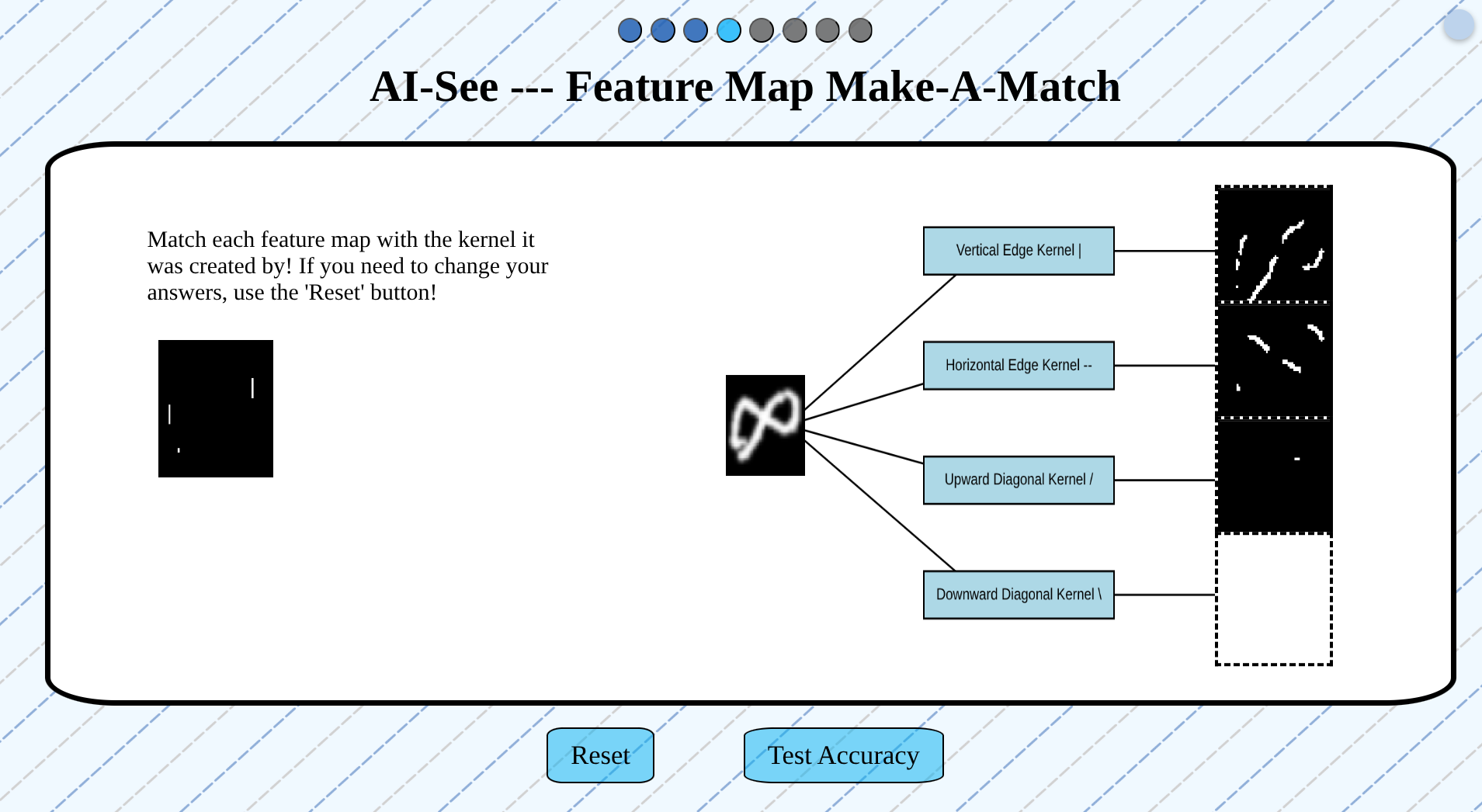
AI-See was developed by UTSA undergraduate Durga Rajarajan in Spring 2025. It introduces the concepts of feature extraction in image recognition. Through interactive activities and challenge levels, AI-See teaches students about feature maps, kernels, and the matrix mathematical operations involved in convolution. AI-See was included in a summer camp module on image recognition, and a full paper will be presented at SIGCSE TS 2026.
Try it here! AI-See
Into The Rabbit Hole
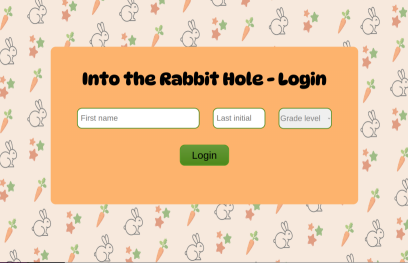
Into The Rabbit Hole was developed by UTSA undergraduate Durga Rajarajan in Fall 2024. It introduces the concepts of depth-first search (DFS) and breadth-first search (BFS) via a game of helping a rabbit find carrots in a maze. It starts with a tutorial and then has a game mode where you have to solve as many DFS and BFS puzzles as possible in the time allotted. IntoTheRabbitHole: A Web Application for Teaching Middle School Students About Search Algorithms was presented at ITiCSE 2025 and was nominated for a Best Paper award.
Try it here! Into The Rabbit Hole
FaunaForest
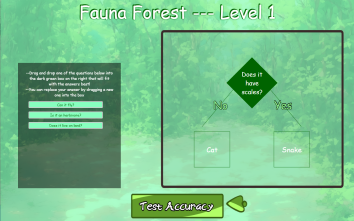
FaunaForest was created by Pragathi Durga Rajarajan and Adrian Cisneros as part of the Spring 2024 Developing AI Tools for K-12 course at UTSA.
FaunaForest aims to teach K-12 students about decision trees via three levels of interactive decision tree puzzles. Each puzzle involves completing a decision tree that has blank mystery nodes in such a way that it will correctly classify various animals. FaunaForest: A Novel Software Tool for Teaching Decision Trees to Middle School Students was presented at the 2025 IEEE Integrated STEM Education Conference (ISEC).
Try it here!
DoodleIt
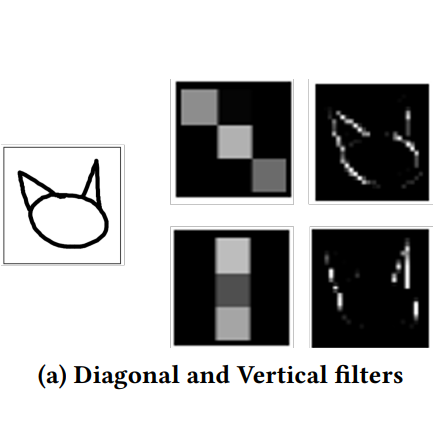
Taking inspiration from Google’s Quick, Draw! demo, Vaishali Mahipal (MS in CS, 2022) led the development of DoodleIt, a browser-based tool that demonstrates how Convolutional Neural Networks (CNNs) perform image recognition.
DoodleIt was presented as a poster at SIGCSE ‘23 and a paper at ACE ‘23. Here are worksheets for the hands-on kernel filter activities we created as part of developing the tool.
You can interact with DoodleIt at this live web link.
ChemAIstry
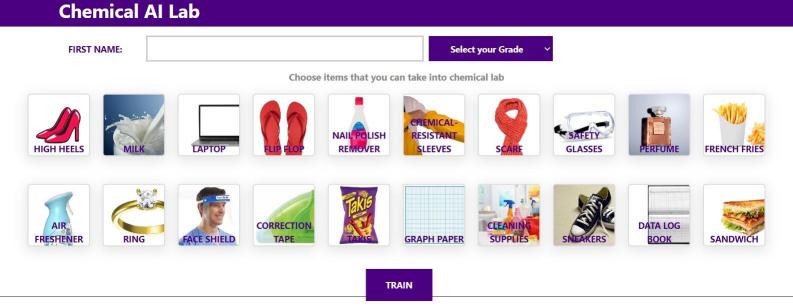
ChemAIstry is an interactive software tool for children which demonstrates training and classification in machine learning. Students select which everyday items are safe to bring into a chemistry lab (e.g., a lab coat is safe; pizza is not). These selections serve as training input for a decision tree classifier. After training, students see how the trained model performs in classifying new objects.
The software was developed by Garima Jain (BS in CS 2023) and Vaishali Mahipal (MS in CS 2022) with assistance from Dr. Ismaila Sanusi and Srija Ghosh (now a computer science student at Cornell University).
ChemAIstry was presented at SIGCSE ‘24. Here is the paper. Interact with the live version!
AI for American Sign Language
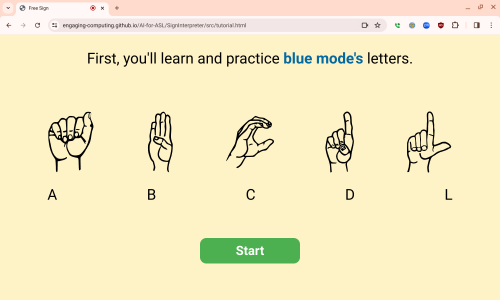
AI for American Sign Language (AI for ASL) teaches children hand gestures for several letters of the American Sign Language (ASL) alphabet while introducing them to image recognition and models.
It was developed by James Dimino and Andrew Farrell during a Spring 2023 class at UMass Lowell and adapted for the web by Angela Wang (now an undergrad in CS at Cornell University) and Ryan Maradiaga (finishing his BS in CS at UMass Lowell).
Here is a live web link to AI for ASL.
AI Chef Trainer
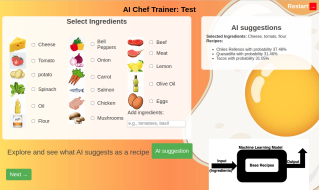
AI Chef Trainer was developed by UTSA Ph.D. candidate Saniya Vahedian Movahed in Spring 2024. Its goal is to introduce students to key ideas in machine learning via the engaging task of recipe recommendation. Students select ingredients to see what recipes are predicted by the AI Chef; then they enter their own recipes (retraining the AI) and then test to see how their recipes can then be recommended by the AI Chef. AI Chef Trainer: Introducing Students to the Importance of Data in Machine Learning was presented at the Educational Advances in AI symposium at AAAI 2025.
Ask Me Anything
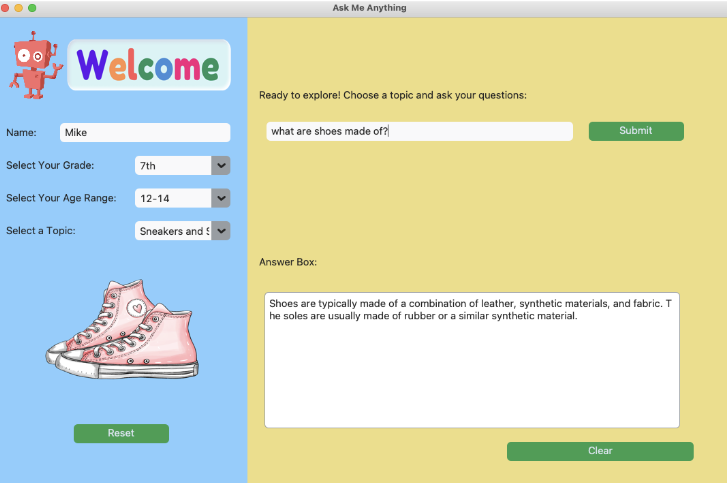
Ask Me Anything (AMA) is a specialized chatbot that answers only topic-specific questions in three areas—astronomy, sneakers and shoes, and dinosaurs.
AMA was developed by UTSA Ph.D. candidate Saniya Vahedian Movahed (with UMass Lowell undergraduate Erika Salas) and is being used to study children’s attitudes of trust and confidence in AI chatbots.
Results from the study using AMA are published the article Ask Me Anything: Exploring Children’s Attitudes Toward an Age-tailored AI-powered Chatbot in the International Journal of Artificial Intelligence in Education.


